The investments below illustrate the evolution of Helios's grantmaking and engagement strategy. We aim to transform lives through postsecondary success, and intentional investments are made at key steps along students' education pathways: early learning, college readiness, and postsecondary completion.
Our 2021 investments illustrate how Helios places intentional scaffolds at certain places along those pathways, to provide essential interventions and infuse energy when needed. These supports include coaching, data analysis and visualization, community engagement, innovation, and scholarships.
Arizona: A Legacy of Transformation
Early Grade Success
$300,000
University of Arizona Foundation
Tucson Regional Educator Collaborative
The Tucson Regional Educator Collaborative (TREC) is a group of dedicated educators, led by the University of Arizona College of Education, in partnership with eight regional school districts, Pima Joint Technical Education District, and more than 20 professional development providers. The goal of the collaborative is to support teachers in the Tucson region, by increasing access to high-quality professional development, especially for teachers in underserved schools.
TREC works to build teacher professional development capacity, develop teacher leaders, and increase teacher retention. To build a knowledge base among teachers, TREC maintains a one-stop website hub that identifies high-quality teacher professional development activities offered in the greater Tucson area. TREC also creates new professional learning and leadership opportunities when needs are not being met. It supports early childhood and K-12 educators in finding the best training matches for their individual learning needs. TREC also supports connections and community-building for educators across the Tucson region.
The pandemic had added layers of difficulty and time required for teachers to find and access professional learning offerings. The investment in Tucson Regional Educator Collaborative helps to provide needed support and capacity building for teachers during an extraordinarily challenging time and, by doing so, helps to ensure that every student in Tucson receives a high-quality educational experience that prepares them for success in college and career.
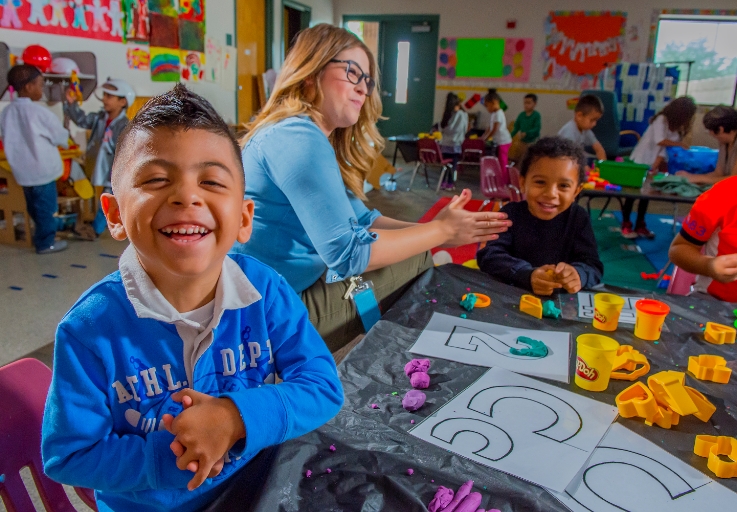
"No single entity can do it all. That's why we have built the Collaborative: To support innovative ideas that go beyond individual district or school professional learning efforts."
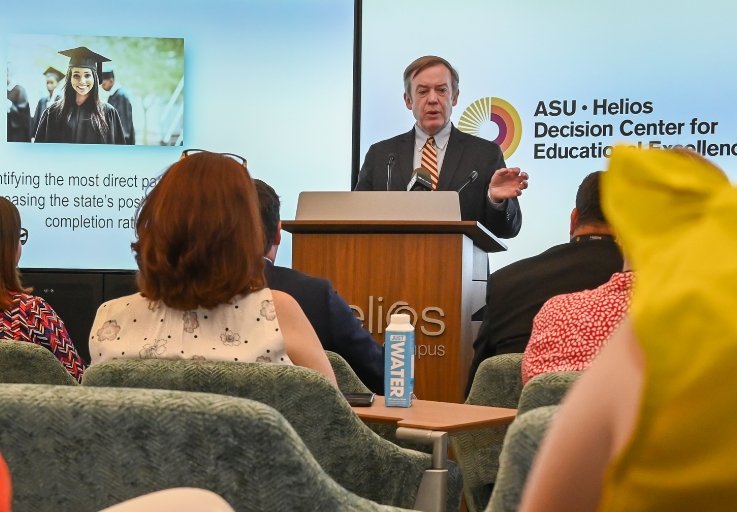
"ASU and Helios are both driven by a profound commitment to enhancing access to quality learning through meaningful collaboration, innovative thinking, and data-driven solutions."
College and Career Readiness
$6,500,000
ASU Foundation for a New American University
ASU Helios Decision Center for Educational Excellence
Data is the center of Helios's engagement strategy, and the ASU Helios Decision Center for Educational Excellence is the focal point and engine for that strategy. The ASU Helios Decision Center, launched in 2017, is a collaborative partnership between Helios and Arizona State University, with the goal to combine data on the education system, stakeholders, and the resources of ASU and Helios to improve student outcomes, and thus improve Arizona communities and the state. The early work of the ASU Helios Decision Center was focused on compiling publicly available Arizona data related to education, developing data sharing agreements, creating tools to support use of the data to drive decision making and goal setting, and beginning data analysis.
Even in the early stages of development, the tools developed by the ASU Helios Decision Center are groundbreaking. For the first time, education stakeholders can perform in-depth analyses of every high school in Arizona, and explore demographic, educational, and community information that impacts each school. Schools and districts can be compared to explore how different strategies produce differences in academic performance. Specific performance metrics can now be identified at the school level, including academic achievement on standardized tests, FAFSA completion rates, and college-going rates. This level of information is now available to educators, community leaders, and policymakers for the first time in Arizona. Consequently, new conversations are now possible about how to increase college and career readiness, postsecondary matriculation rates, and ultimately, postsecondary completion rates.
The work of the ASU Helios Decision Center has transitioned from data acquisition to data analysis and visualization. In this phase of the work, the ASU Helios Decision Center will focus on further development of the analytical and predictive tools that will lead to better and more informed decision-making around practice and policy as it relates to student performance. The ASU Helios Decision Center will develop data visualizations covering the full education continuum—from PreK through postsecondary education and workforce. The next tool to be built and deployed will link student course data from high school through Arizona colleges and universities to current workforce needs and trends. This tool will provide new insights into how our educational systems are preparing students for the actual demands of Arizona's economy. That will enable an assessment of preparedness, not just in the aggregate, but by counties, municipalities, districts, high schools, and postsecondary institutions.
Last year also marked the launch of the Helios Decision Theater®, in the center of the Helios Education Campus. Helios will leverage this new facility to conduct interactive education presentations and facilitated discussions, all aimed at improving student outcomes and closing achievement gaps.
Postsecondary Completion
$1,250,000
Education Forward Arizona
Adelante Scholars
Colleges and universities in Arizona, as is true nationally, are experiencing unprecedented declines in student enrollments. Whether due to the pandemic or to the resulting economic downturn, the decrease in college enrollments has more profoundly affected people of color. Data show that Native American, Black, and Hispanic students fare the worst. With no cohesive statewide plan to address these declines, Helios Education Foundation convened a group of Arizona college access partner organizations to devise a potential solution to re-engage students.
From that collaboration was born the Adelante Scholarship initiative. The initiative creates a network of Arizona college access organizations who work together to re-engage 2020 and 2021 high school graduates who did not start postsecondary education due to the COVID-19 pandemic. The initiative, managed by Education Forward Arizona, provides incentive scholarships, and helps students with college application and financial aid processes.
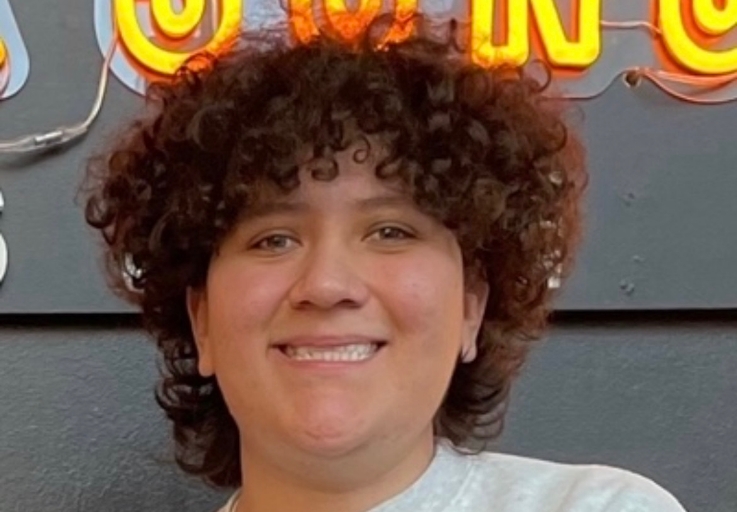
"Thanks to Helios Education Foundation and Education Forward Arizona, I was able to cover tuition and books that I wouldn’t have been able to without the Adelante Scholarship. Their scholarship has allowed me to continue my education."
Florida: A Legacy of Transformation
Early Grade Success
$1,000,000
Pinellas Education Foundation
Pinellas Early Literacy Action Plan
While third grade reading scores in Pinellas County and across Florida have increased, kindergarten readiness has flatlined over the past several years, and a large gap remains between Black and non-Black students in third-grade reading proficiency. Florida Department of Education testing and accountability structures emphasize grades three to five, an incentive causing schools to focus more resources on those elementary years rather than on early reading. Research, however, supports the opposite strategy, emphasizing the importance of early intervention and demonstrating that educational inequities can be diminished by high-quality preschool and early primary instruction.
The Pinellas Early Literacy Action Plan, the newest collaboration of the Pinellas Education Foundation and Pinellas County Schools, builds on existing early childhood partnerships already in place, and focuses specifically on expanding early literacy supports in PreK through second grade. The Early Literacy Action Plan improves district early literacy professional development content and coaching supports for kindergarten, first, and second grade teachers, while also connecting PreK teachers to the same resources. By shifting the focus to earlier intervention, the district has the potential to dramatically improve PreK-second-grade student achievement, effectively preparing students for the more rigorous content of grades three to five, and thereby reducing the need for additional resources in later grades.
Helios’s investment in the Pinellas Early Literacy Action Plan serves 16 Pinellas County low-income elementary schools and eight to 16 PreK programs that feed into those elementary schools, ultimately serving up to 250 teachers and impacting up to 4,000 students PreK through second grade.
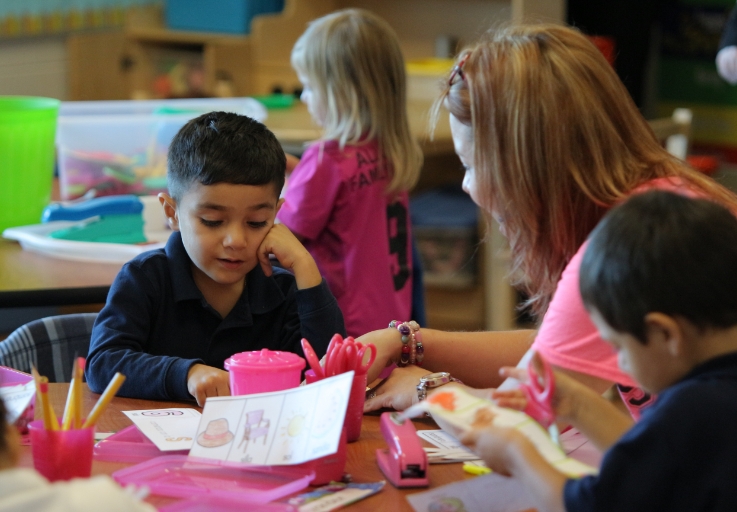
"Too many kids are starting not ready for kindergarten. By building a common understanding and extending the science of reading into voluntary PreK classrooms, students will arrive to kindergarten ready to be successful."
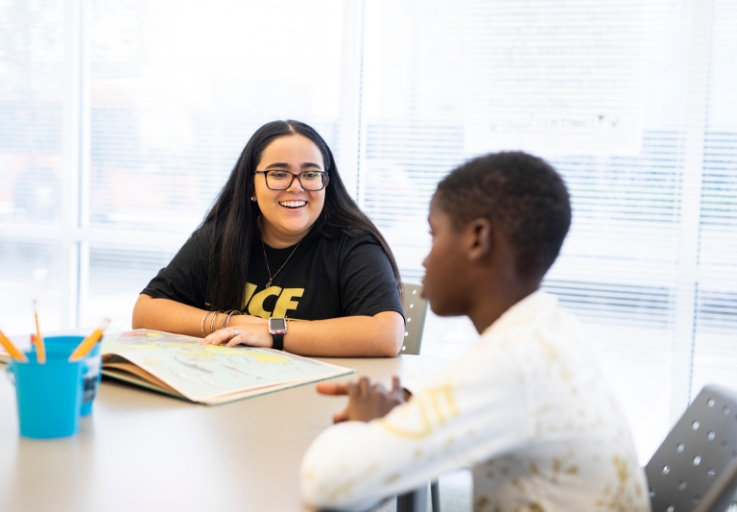
"With an emphasis on advancing education equity and closing gaps in opportunities to learn, PEID leverages strategies that are innovative in a historically underserved community to build capacity, strengthen relationships, and define pathways to postsecondary degrees."
College and Career Readiness
$1,000,000
University of Central Florida Foundation
Parramore Education and Innovation District Implementation
During the Roaring 20's, the Parramore neighborhood of Orlando was a thriving African-American community fueled by resident-owned businesses. The construction of Interstate 4 in the 1950s, however, divided Parramore from the central downtown, leading to a decades-long economic decline in this underserved urban neighborhood. Guided by community leaders, and in partnership with the University of Central Florida (UCF), Valencia College, and Orange County Public Schools, Helios Education Foundation invested in the Parramore Education and Innovation District (PEID) to increase kindergarten readiness, academic achievement, and postsecondary degree completion among Parramore residents.
This investment supports the coordination of effective, scalable, and sustainable interventions to improve educational outcomes in Parramore. To do this, UCF launched a collaborative structure for PEID to align resources, capitalize on existing strengths, and work collectively to address needs. In addition, in partnership with the community, UCF is identifying and implementing interventions aimed at improving metrics in eight identified target areas: school readiness, K-12 academic success; youth social-emotional development; college readiness; college enrollment, persistence, and completion; adult education; teacher recruitment and retention; and parent engagement.
Postsecondary Completion
$1,200,000
Broward College Foundation
Helios-BC2FIU Scholars
Florida's 2+2 system guarantees admission to a state university to anyone who graduates with an associate's degree. However, students are not guaranteed transfer into the university or degree program of their choice. To address that challenge, Florida's universities and colleges have established stronger transfer agreements within their regions, which go beyond the state's traditional 2+2 articulation agreements.
While the policy is encouraging more students to transfer from community college to a Florida state university, a student's transition from community college to university is often challenging. For starters, gaining admission into the student's chosen degree major often requires additional coursework. That can mean that a student spends additional time completing their degree, adding cost and, often, increased student debt. For many students, transferring from a small state community college to a large four-year institution can create a culture shock.
The Helios-BC2FIU Scholars is a response to both the culture and the financial challenges students face when transferring from community college to university. Helios-BC2FIU scholarships of $2,000 per year for up to five years will help 125 low-income students complete an associate's degree at Broward College (BC) and then transfer to Florida International University (FIU) to complete their bachelor's degree in one of four areas: hospitality and tourism management, criminal justice, health services administration, and new media communications. Funding also supports scholar tracking and program evaluation. Ultimately, the program seeks to promote more access to university for underserved, minority, and first-generation students.
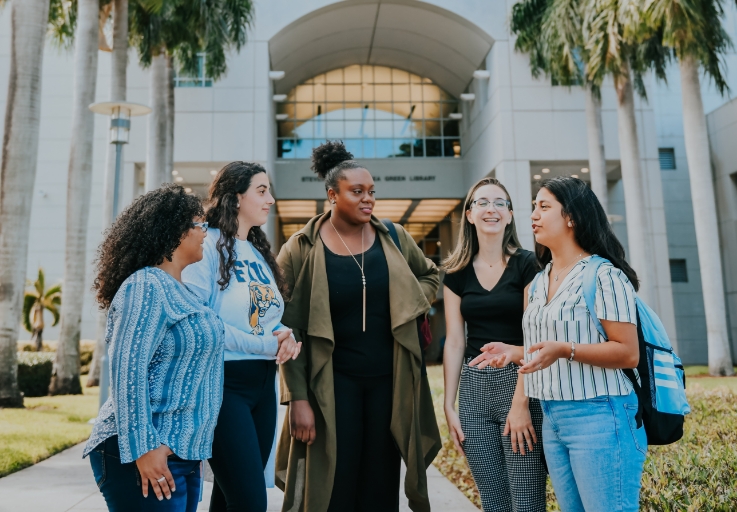
"This is an investment not only in higher education but in the prosperity of our region."

